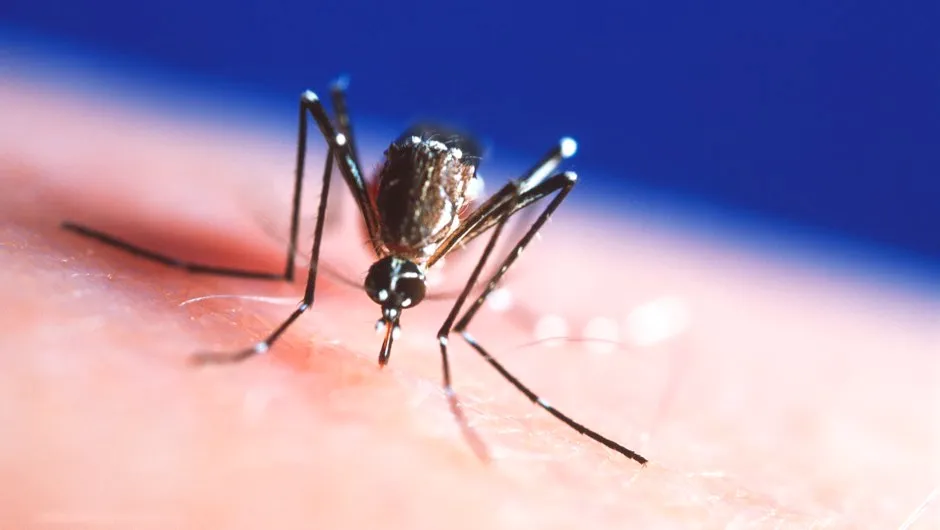A team of scientists in the US has figured out the compounds in human blood that attract mosquitoes – potentially paving the way for a drug that could mask our tempting flavour.
The insects are not attracted to simple flavours like sweet or salty, but only a complex combination of ingredients.
A team of researchers at The Rockefeller University in New York City used genetically-modified females to see which neurons fire when they tasted blood.
Only female mosquitoes feed on blood, which they need for their eggs to develop, but they survive primarily on nectar like thousands of other insect species.
Their blood sucking habits make them the deadliest animal on the planet to humans, killing around half a million people every year through disease like malaria, dengue and yellow fever.
Read more about mosquitoes:
- Meet the microbe that is making mosquitoes malaria-free
- Genetically engineered mushrooms used to kill malaria-carrying mosquitoes
- Mosquitoes infected with bacteria could help battle spread of dengue fever
The researchers tricked the mosquitoes into switching from nectar-feeding mode to blood-feeding mode by offering them a mix of four compounds developed to mimic the flavour of blood. It contained glucose, sodium chloride, sodium bicarbonate and adenosine triphosphate (ATP) – a compound that provides energy to cells.
The mosquitoes loved this synthetic "blood", but they were not interested in a mixture of sugar and saline solution.
A fluorescent tag in the genetically modified insects glowed when a nerve cell was activated, allowing the researchers to track which nerve cells lit up when they were offered different meals.
Glucose, which is found in both nectar and blood, didn't consistently activate any neurons in particular. Sodium chloride, sodium bicarbonate and ATP each activated specific clusters of neurons.
However, one cluster of neurons was only activated by blood, including both real blood and the researchers’ synthetic mix, and not by any of the ingredients separately.

“These neurons break the rules of traditional taste coding, thought to be conserved from flies to humans,” said Veronica Jové, one of the lead researchers in the study.
Dr Leslie Vosshall, who heads the laboratory at the Howard Hughes Medical Institute at The Rockefeller University, said the investigation could eventually lead to oral mosquito repellents that would interfere with their taste for blood. But she said it might be impossible to ever understand exactly what humans taste like to mosquitoes.
She compared it to trying to describe the way a honeybee sees a flower in ultraviolet hues invisible to the human eye, or how a bats see through sonar waves we cannot hear.“There is nothing like this in the human experience,” she said.
Reader Q&A: Why do mosquito bites itch so much?
Asked by: Duncan Borg Conti, Malta
When a mosquito bites, she injects saliva containing anticoagulant enzymes into the wound. The first time you are bitten, nothing happens, but your immune system then begins making antibodies that bind to these foreign proteins.
For a while, this immune reaction will cause itchy, swollen bumps. Over many years this response will fade away, but if you go a long time without being bitten, it can start again the next time you are exposed.
Read more: